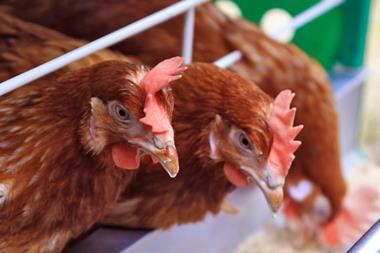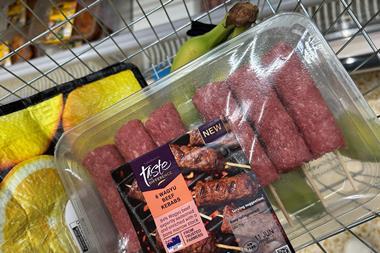Free-range egg producers have accused retailers of double standards in allowing GM feed for pig and poultry production but not for eggs.
The requirement to use non-GM soya in chicken feed for egg production was costing producers an extra three pence per dozen produced, according to the British Free Range Egg Producers Association.
Forbidding the use of GM feed for eggs but allowing it for other proteins was senseless, said BFREPA chairman John Retson, who called for the ban to be scrapped.
“What I’m trying to highlight here is that some consumers are sitting down to breakfast with GM bacon, non-GM eggs and goodness knows where their black pudding comes from,” he added.
BFREPA had already held several meetings with retailers to highlight their concerns, but none of them was prepared to be the first to change its specifications, he added.
“They say they’ll actively look at it, but at the moment it’s not causing them a problem because there’s an over-supply of eggs,” Retson said.
BFREPA has appointed a new director of policy, due to start in October, whose first task will be to study the structural supply chain practicalities of switching to GM feed and to prepare for a potential switch. Even if retailers made the switch now, it would take about 18 months for adequate supply to be put in place.
Retson warned that, in the long term, non-GM feed was likely to be in increasingly short supply as more and more farmers around the world converted to growing GM crops.
The additional cost of non-GM feed is compounding an already precarious situation in the free-range egg industry, which has recently been suffering from low prices because of over-supply ahead of the 2012 ban on conventional cages.
Since autumn, producers had also been hit by an increase in feed costs caused by global grain shortages, added Retson. He estimated that the production cost of a dozen eggs had risen by 15p as a result.
Sign in to comment on this article
Not logged in before? Register for FREE guest access today.
You will be able to:
- Read more stories
- Receive daily newsletters
- Comment on stories
Advert



















No comments yet